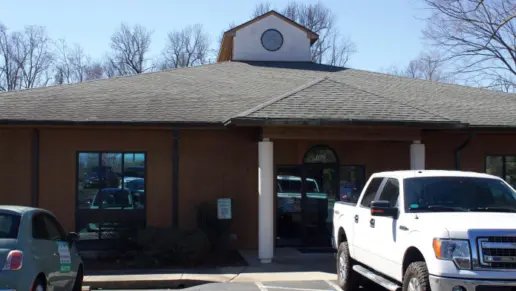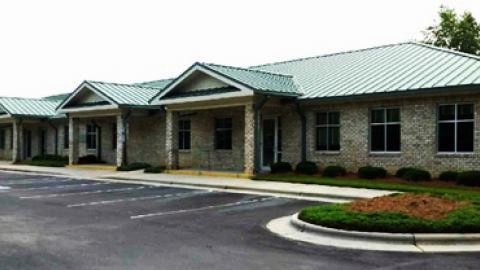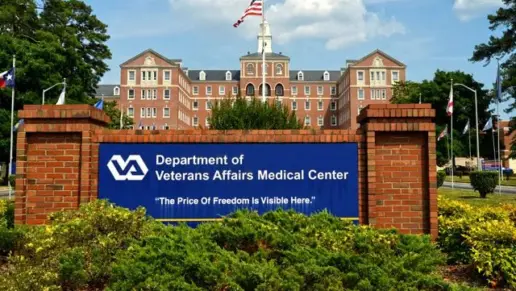My sister went there. From what she told me the staff there really helped her make a complete turnaround. I am really grateful for how they helped her. Don't hesitate to send your loved one there.
About Black Mountain Treatment Center
Black Mountain Substance Abuse Treatment Center for Women is a 60 bed residential treatment facility for adult women located in Swannanoa, North Carolina. They focus on providing addiction treatment services to probationers and parolees before they transition back into society.
Something special about this facility is its beautiful location. You’ll attend treatment in the beautiful mountains of western North Carolina so you can start your recovery journey in a peaceful, serene spot.
Their residential program is a 90 day program for women aged 18 or older. It uses a multidisciplinary approach to substance use disorder treatment that includes group therapy, individual therapy, and addiction education.
While in residential treatment, clients participate in the center’s primary program. This program helps educate and treat those with substance use disorder. It focuses on teaching recovery as a solution to a disease that is not curable, and that can be fatal if left untreated. Recovery groups and holistic treatments are an important part of this program. Physical wellbeing, family and social welfare, psychological needs, legal concerns, education planning, and vocational support are topics that will be addressed.
In addition, clients also participate in group therapy as part of their treatment plans. This type of therapy allows them to connect in a group setting to discuss and work through mental, emotional, and physical issues. There are a number of different group therapy modalities available, including support groups, psychoeducation and more.
In both individual and group-based settings, trauma informed counseling is available. It’s very common for trauma to play a role in a person’s need to use substances to cope. As the brain changes, it’s imperative to restore it to normal functioning to create success in recovery. The Center utilizes Stephanie Covington’s work focused on women’s recovery/trauma and introduces clients to a variety of self help recovery groups.
Finally, family support is another cornerstone of residential treatment at the Center. Ensuring the family unit understands the complexity of addiction is important, yet not all families can participate in family programming. At Black Mountain Treatment Center, relationships are an important topic, and learning how to repair and work through trauma and unhealthy dynamics while learning how to effectively communicate is covered as a part of the healing process.
Addiction recovery services are provided free of charge to participating clients, though this support does not extend to major medical or mental health care needs.
Clients who have gone through this program say they’re now clean and sober and they owe their success to the care they received here. One client said that the experience played a big role in the person they are today.
Facility Overview
Rehab Score
Other Forms of Payment
Addiction Treatments
Levels of Care
Treatments
The goal of treatment for alcoholism is abstinence. Those with poor social support, poor motivation, or psychiatric disorders tend to relapse within a few years of treatment. For these people, success is measured by longer periods of abstinence, reduced use of alcohol, better health, and improved social functioning. Recovery and Maintenance are usually based on 12 step programs and AA meetings.
There are many types of drug rehab in North Carolina. To receive treatment for addiction, you can choose from many inpatient and outpatient programs. Often, participants start with detox and work through a full continuum of care that continues with ongoing support for long-term recovery.
Many of those suffering from addiction also suffer from mental or emotional illnesses like schizophrenia, bipolar disorder, depression, or anxiety disorders. Rehab and other substance abuse facilities treating those with a dual diagnosis or co-occurring disorder administer psychiatric treatment to address the person's mental health issue in addition to drug and alcohol rehabilitation.
A combined mental health and substance abuse rehab has the staff and resources available to handle individuals with both mental health and substance abuse issues. It can be challenging to determine where a specific symptom stems from (a mental health issue or an issue related to substance abuse), so mental health and substance abuse professionals are helpful in detangling symptoms and keeping treatment on track.
Opioid rehabs specialize in supporting those recovering from opioid addiction. They treat those suffering from addiction to illegal opioids like heroin, as well as prescription drugs like oxycodone. These centers typically combine both physical as well as mental and emotional support to help stop addiction. Physical support often includes medical detox and subsequent medical support (including medication), and mental support includes in-depth therapy to address the underlying causes of addiction.
Programs


Clinical Services
Cognitive Behavioral Therapy (CBT) is a therapy modality that focuses on the relationship between one's thoughts, feelings, and behaviors. It is used to establish and allow for healthy responses to thoughts and feelings (instead of unhealthy responses, like using drugs or alcohol). CBT has been proven effective for recovering addicts of all kinds, and is used to strengthen a patient's own self-awareness and ability to self-regulate. CBT allows individuals to monitor their own emotional state, become more adept at communicating with others, and manage stress without needing to engage in substance abuse.
Group therapy is any therapeutic work that happens in a group (not one-on-one). There are a number of different group therapy modalities, including support groups, experiential therapy, psycho-education, and more. Group therapy involves treatment as well as processing interaction between group members.
In individual therapy, a patient meets one-on-one with a trained psychologist or counselor. Therapy is a pivotal part of effective substance abuse treatment, as it often covers root causes of addiction, including challenges faced by the patient in their social, family, and work/school life.
Life skills trainings involve all the skills a person must have in order to function successfully in the world. These include time management, career guidance, money management, and effective communication. Truly successful addiction recovery is based on the ability to not only live substance-free, but to thrive. Life skills teaches the practical necessities of functioning in society, which sets clients up for success in life, and therefore sobriety.
Motivational Interviewing (MI) is a clinical approach to helping people with substance abuse issues and other conditions shift behavior in positive ways. It is more goal-oriented than traditional psychotherapy, as MI counselors directly attempt to get clients to consider making behavioral change (rather than wait for them to come to conclusions themselves). Its primary purpose is to resolve ambivalence and help clients become able to make healthy choices freely.
Trauma therapy addresses traumatic incidents from a client's past that are likely affecting their present-day experience. Trauma is often one of the primary triggers and potential causes of addiction, and can stem from child sexual abuse, domestic violence, having a parent with a mental illness, losing one or both parents at a young age, teenage or adult sexual assault, or any number of other factors. The purpose of trauma therapy is to allow a patient to process trauma and move through and past it, with the help of trained and compassionate mental health professionals.
Contact Information
1449 North Fork Road
Black Mountain, NC 28711


